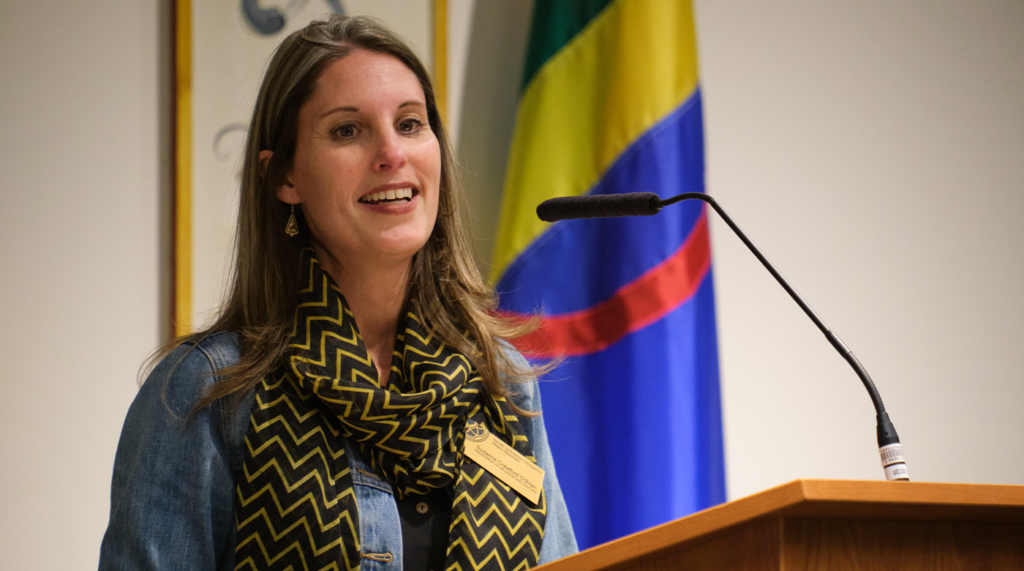Page 229 • (12,336 results in 0.244 seconds)
-
. Emphasis will be placed on developing evidence-based practitioners that critically utilize the scientific literature in their professional endeavors in Kinesiology. (4) KINS 505 : Inclusive Leadership The course is designed to explore cultural factors that influence people and human interaction. Specifically, students will study the role of diversity and the experiences of people with marginalized identities in United States sport organizations. The various ways that people may differ and how this
-

community and a valuable exploration of their own sense of vocation. In most cases, alumni described their lives and perspectives as transformed because of PLU. 0 of alumni respondents said PLU had a big or medium impact on their career, describing their experience at PLU as transformative 0 said PLU made them more compassionate and caring 0 said PLU sharpened their sense of vocation 0 agreed or strongly agreed that PLU values excellence 0 rated their education as “good” or “excellent” However, we also
-

year really motivated both students and faculty, and we were able to bring that motivation into the classroom through applied projects. Faculty were able to bring these issues into discussions of literature, history, philosophy, ethics, and environmental equity. How have faculty, staff and students responded to that challenge? I’m continually amazed at how my colleagues pivoted so quickly to online classrooms, how they spent the entire summer learning very different kinds of pedagogies and
-

think the value of literature and writing is even more paramount as we move forward, because it’s acting as kind of a resistance to forces in our culture that want to reduce or simplify experience,” Barot said. “What literature does is restore complexity to the things that people feel and do and think, and celebrate complex emotional, social, intellectual experiences.” As for the future of the Rainier Writing Workshop, Barot looks backward and forward, always with the founders’ vision—and
-
researched language pedagogy and literature with the department of Languages and Literatures. Xiang Fengjing Shaoxing University, Shaoxing, Zhejiang, China Xiang Fengjing researched language pedagogy and literature with the department of Languages and Literatures. Zhou Jie Fuzhou University, Fuzhou, Fujian Province, China Zhou Jie researched language pedagogy with the department of Languages and Literatures. Hu Zili Chengdu, China Zili served as a Fulbright Foreign Language Teaching Assistant (FLTA) for
-
Course Descriptions RELI 131 : The Religions of South Asia - RL, VW, GE Hinduism, Buddhism, Jainism, and Sikhism - their origins and development, expansion, and contemporary issues. (4) RELI 211 : Religion and Literature of the Hebrew Bible - RL, IT This course introduces students to the critical study of the books in the Hebrew Bible Canon. Students will become familiar with the socio-historical context of these biblical books and their major theological themes; explore in depth a
-

Two PLU students spend the summer reading the stars Physic professors Katrina Hay and Sean O’Neill and students Julian Kop ’24 and Jessica Ordaz ’24 observe and characterize variable stars and globular clusters at PLU’s W. M. Keck Observatory. Posted by: mhines / August 28, 2023 Image: As part of their summer research at PLU, physics professors Sean O’Neill and Katrina Hay, and student researchers Julian Kop (pictured) and Jessica Ordaz utilize the specialized telescope at the W. M. Keck
-
, politics, history, kinship, and economics. (4) ANTH 368 : Edible Landscapes: The Foraging Spectrum - ES, GE The course examines foragers in Africa, North America, and Australia. Using classic ethnographic literature, it provides a cultural ecological perspective of foraging societies in a variety of environments. It also examines how foraging studies inform archaeological research and the challenges that these peoples now face in a rapidly changing world. (4) ANTH 370 : The Archaeology of Ancient
-
. “In the first semester, and Alicia can back this up, I changed my major (in my head at least) 10, maybe 15 times,” he laughs. “The world was full of amazing opportunities and I wanted to learn it all.” Then, on a class trip to Seattle, he had a transformative conversation with Beth Kraig, history department chair, who would become his mentor. “Well, Nathe,” she told him, “you should consider being a history major. You get to write, you get to think critically and you have some opportunities to
-
EUPHONIUM BM Performance of at least two works of contrasting styles (concerto, etude, sonata, through composed original literature). Performance quality must be at or near that of a good conservatory student. All major and minor scales (all three forms) and arpeggios. Scales and arpeggios must be played 2 octaves from (concert pitch) low E to Bb, and one octave from B to Eb. Students with fourth valve will play all scales and arpeggios for any note in two octaves minimum. Two-octave chromatic scales
Do you have any feedback for us? If so, feel free to use our Feedback Form.


